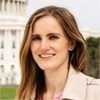
Notorious billionaire Bill Gates, Microsoft co-founder and global vaccine zealot, shared his thoughts on a recent dinner with President-elect Donald Trump during an interview with The Wall Street Journal. Reflecting on the three-hour meeting, Gates expressed admiration for Trump’s interest in global health initiatives, describing the conversation as “quite intriguing.”
“I had a chance, about two weeks ago, to go have a long and actually quite intriguing dinner with him,” Gates said to WSJ editor-in-chief Emma Tucker. The dinner, which also included incoming White House Chief of Staff Susie Wiles, covered a “wide range” of topics, according to Gates.
Warp Speed for “HIV Cure”?
Gates noted Trump’s involvement in accelerating vaccine development during the Covid-19 pandemic, drawing parallels to potential advancements in developing a “cure for HIV” that, said the “philanthropist,” is currently in the early stages of development by his foundation.
“[Trump], in the Covid days, accelerated the vaccine innovation,” said Gates, referring to Operation Warp Speed (OWS). The operation, launched by the Trump administration, streamlined funding, regulatory approvals, and logistical support to expedite the development and distribution of Covid vaccines, resulting in multiple vaccines being developed and authorized in record time.
Trump has proudly referred to himself as the “Father of Vaccines,” and continues to express pride in the success of OWS to this day.
However, the safety and efficacy of these vaccines have proven to be highly problematic, becoming a major point of contention in discussions about unprecedented healthcare policies and mandates, as extensively covered in The New American magazine (see here, here, here, here, here, and here).
“So I was asking him if maybe the same kind of thing could be done here, and we both got, I think, pretty excited about that,” said Gates, adding that “Such amazing things have happened, and can happen there.”
The Bill & Melinda Gates Foundation has made gene-based approaches to curing HIV a top priority. In 2019, it joined forces with the National Institutes of Health (NIH), with each committing $100 million to accelerate research into groundbreaking gene-editing techniques. According to the official announcement:
This initiative follows a bold announcement made earlier this year by President Donald J. Trump during the State of the Union Address to end the HIV epidemic in the United States in the next 10 years.
The partnership seeks to develop “scalable and affordable” gene-based solutions, particularly for resource-limited settings where the burden of HIV is highest. That includes sub-Saharan Africa and other developing regions.
“Eradicating Polio”
Gates also highlighted a shared interest in addressing the rising polio cases in various countries, from Afghanistan and Pakistan to Gaza and African countries where the cases now “pop up.” He said:
We also talked about polio, where we are very close to getting that done. But if you stop [vaccinating], it will spread back.… So [Trump] was fascinated to hear what he could do to maximize the chance that during the next four years that incredible milestone could be achieved. I feel like he was energized and looking forward to drive innovation.
The Gates’ foundation has long championed a “complete eradication of polio.” In October 2022, it announced a commitment of $1.2 billion to support the Global Polio Eradication Initiative’s (GPEI) Polio Eradication Strategy 2022–2026.
Gates concluded that section of the interview smiling incredulously:
I was frankly impressed with how well he showed a lot of interest in the issues I brought up.
The foundation’s past polio initiatives faced controversies, as they were linked to outbreaks of vaccine-derived poliovirus (VDPV) and cases of severe paralysis in children. Additionally, allegations of a lack of informed consent in certain vaccination drives have raised ethical concerns about the implementation of these efforts.
The Meeting
The initial reports about the meeting between Bill Gates and President-elect Donald Trump emerged on December 27, 2024, when Trump announced on Truth Social that Gates had requested to visit him that night at his Mar-a-Lago residence in Florida.
This announcement sparked interest, as Gates had previously been critical of Trump’s handling of the Covid-19 pandemic. However, following Trump’s election victory, Gates publicly congratulated him and expressed hope for future collaboration “to build a brighter future for everyone.”
Trump Administration and Biotech
Bill Gates’ agenda in global health aligns closely with the interests of key figures in the incoming Trump administration, particularly in the biotech sector. With substantial investments in cutting-edge therapies like mRNA technology, the administration’s priorities resonate with Gates’ focus on innovation in vaccines.
Vivek Ramaswamy, appointed to co-lead the Department of Government Efficiency (DOGE), exemplifies this alignment. As the founder of Roivant Sciences, Ramaswamy has been a prominent player in biotech, particularly with the 2018 launch of Genevant Sciences, a company dedicated to RNA-based therapies, including mRNA technology. Genevant’s involvement in legal disputes over mRNA vaccine patents underscores its active role in shaping the future of genetic medicine — a focus shared by Gates.
Similarly, Vice President J.D. Vance brings biotech credentials to the administration. Through Narya Capital, Vance has invested in biotech startups such as Kriya Therapeutics and AmplifyBio, signaling his commitment to advancing genetic medicine.
As Gates continues to champion new vaccines and promote widespread vaccinations, the Trump administration’s biotech-friendly approach appears to be a fertile environment for advancing shared goals in vaccine development.
Trump and Big Pharma
The synergy between the incoming administration and Big Pharma was evident during a high-profile dinner hosted by Trump at Mar-a-Lago on December 5, 2024. The event brought together key players from the pharmaceutical industry, including Pfizer CEO Albert Bourla, Eli Lilly CEO David Ricks, and PhRMA CEO Stephen Ubl, alongside Robert F. Kennedy Jr., Trump’s pick for secretary of Health and Human Services (HHS). Gates’ initiatives, particularly in vaccine innovation, mirror the broader push by the pharma executives and the administration to foster collaboration between the public and private sectors in biotechnology.
However, Gates’ deep involvement in public health, coupled with his controversial history and advocacy for population control, underscores the significant risks of granting powerful biotech and pharmaceutical interests outsized influence over critical health policies. This concentration of power raises urgent questions about the prioritization of experimental technologies and corporate agendas over transparency, ethical accountability, and public well-being.
More critically, it highlights the deeper concern of the federal government’s unconstitutional entanglement with the healthcare sector. By collaborating with private corporations in biotechnology, the government leverages the force of law to advance policies that could further undermine individual freedoms, entrench oligarchic interests in public health, and erode accountability. This convergence of power not only jeopardizes constitutional principles, but also poses a direct threat to the rights and liberties of the public it is supposed to serve.




